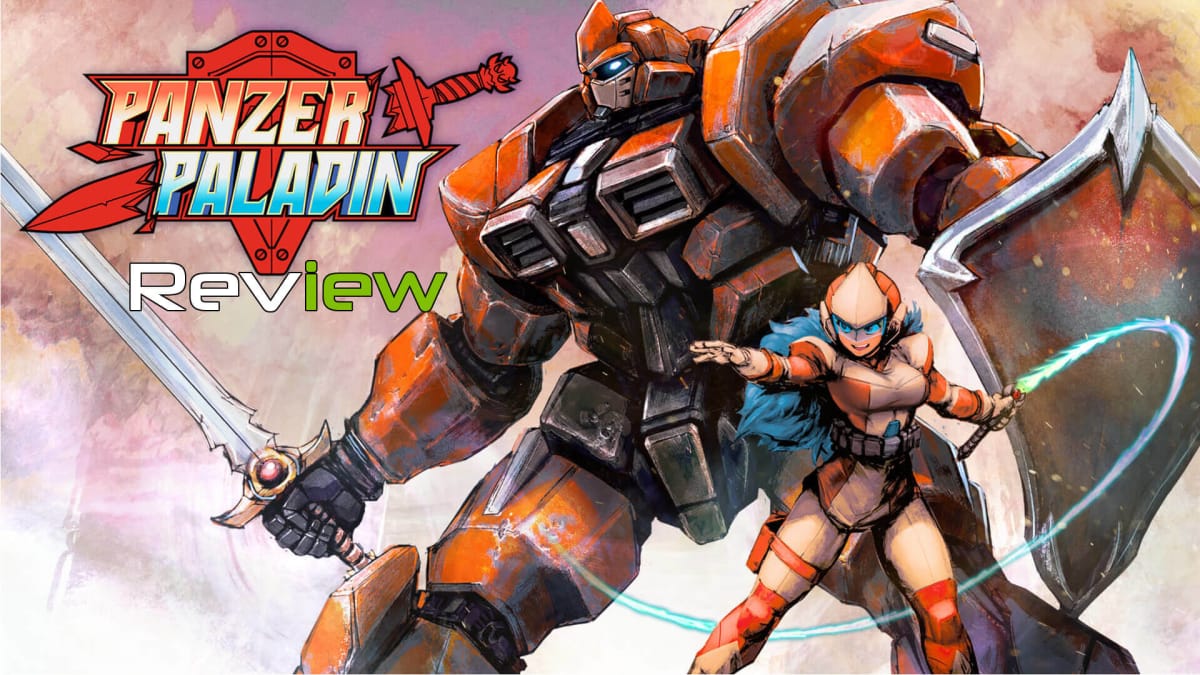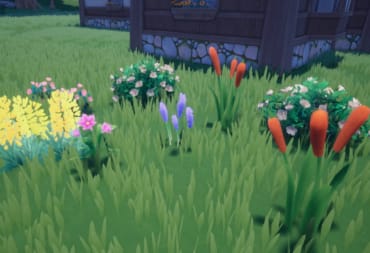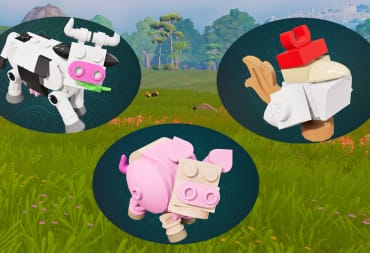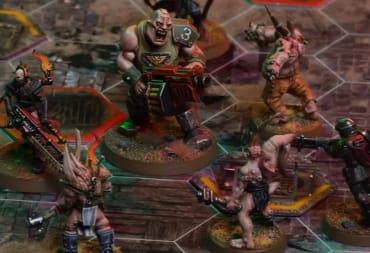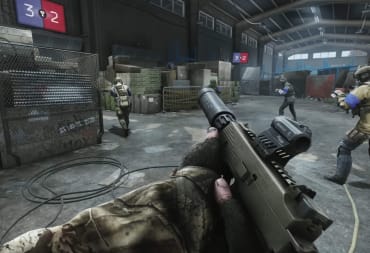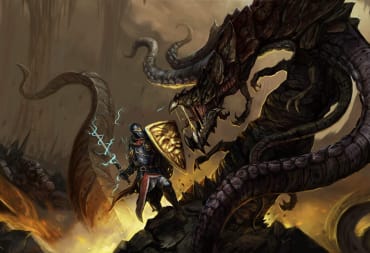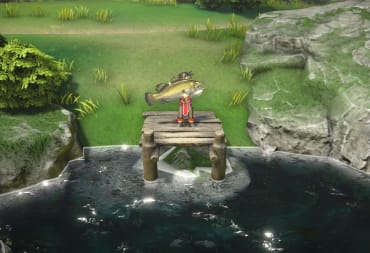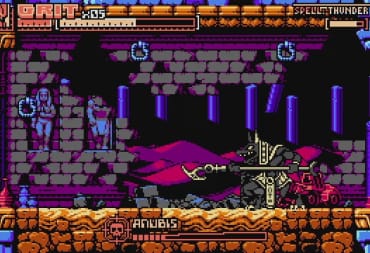I missed out on the NES era of gaming, and just barely made it in time to experience SNES platformers. Thankfully, there's developers such as Tribute Games who create games that emulate the style of old NES and SNES platformers. This allows fresh-faced young'uns like me to discover what made these titles so special. Tribute Games' latest, Panzer Paladin, is a fun but flawed game that certainly feels authentic for the era it aims to emulate, and it even adds a few cool elements to make it a pretty fun romp.
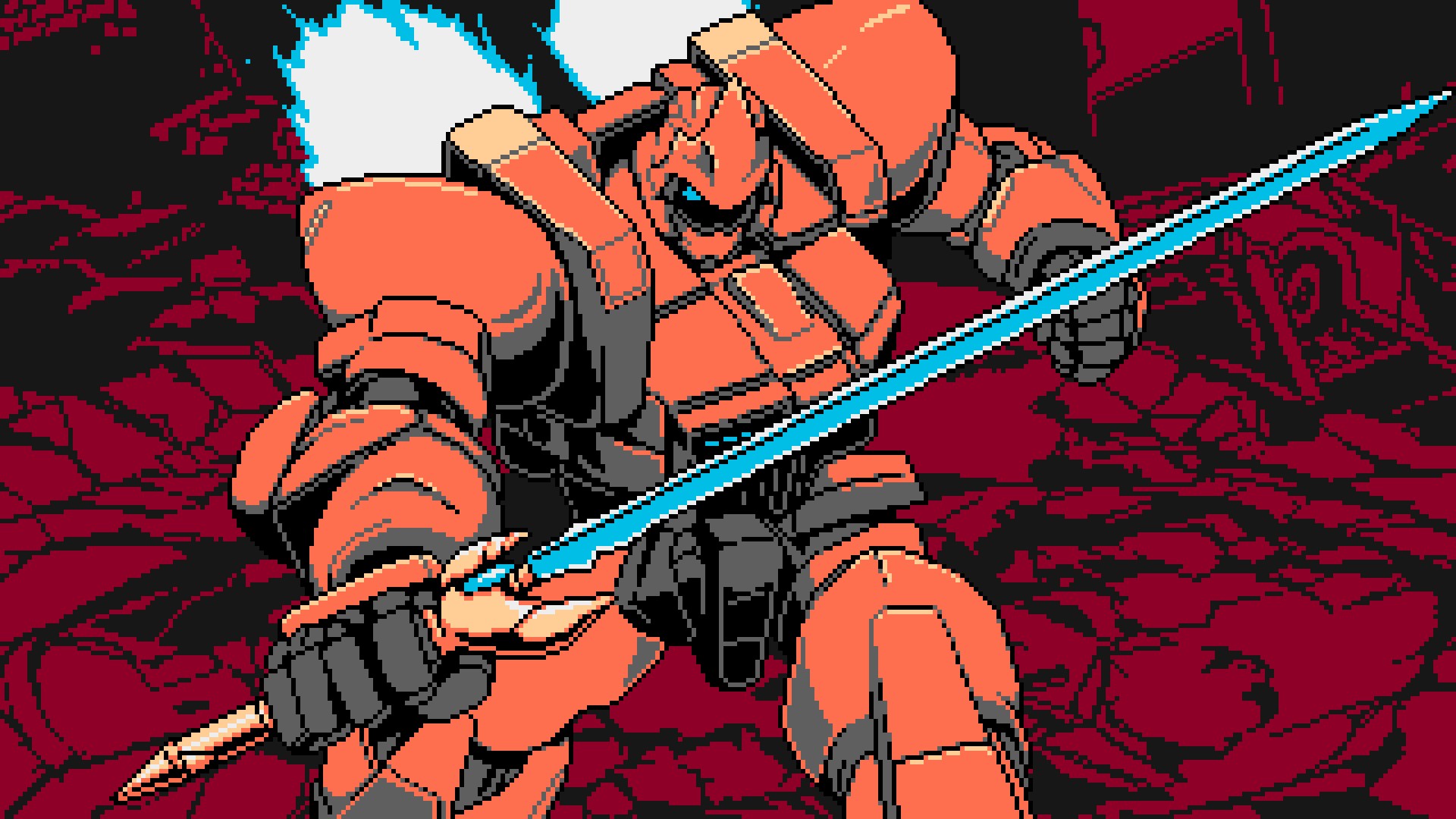
Panzer Paladin's Authentic Platforming
In Panzer Paladin, you take the role of a pilot named Flame, who controls a giant mech called Grit. After demons and other monsters from myth threaten Earth, it's up to our protagonist and her capable mech to put an end to the trouble. The story isn't anything extraordinary, but it feels like some plot straight out of the 90s. It serves as a good backdrop for all the hacking, slashing, and platforming you'll be doing in Panzer Paladin.
Indeed, this is a platformer, so it's a game all about movement. Unfortunately, it took a while to get used to the relatively slow speed of your mech. I understand that Grit is a lumbering robot, but platforming was a bit more sluggish than I would have liked. Jumping forward doesn't go very far, and downward thrusting from enemy to enemy with your weapons is sometimes difficult due to the lack of momentum. There's a few movement skills at your disposal such as a dash backward that dodges enemies, and an upward thrust that helps you jump a bit higher. I appreciated these mobility-centered inclusions and they are quite useful, but I couldn't get over the slower base speed.
Grit isn't the only thing you're controlling, though. The pilot, Flame, can hop out of her mech and jump around the levels. You're much more vulnerable in this state and have less health, but you're smaller and therefore less of a target. Some parts of the stage are too small for Grit to get through, which requires the use of Flame. Unlike Grit, I enjoyed the speed of the little pilot, and segments necessitating her use are fun - she also has a whip that allows her to swing from hooks. These areas are few and far between, though, which is a little disappointing.
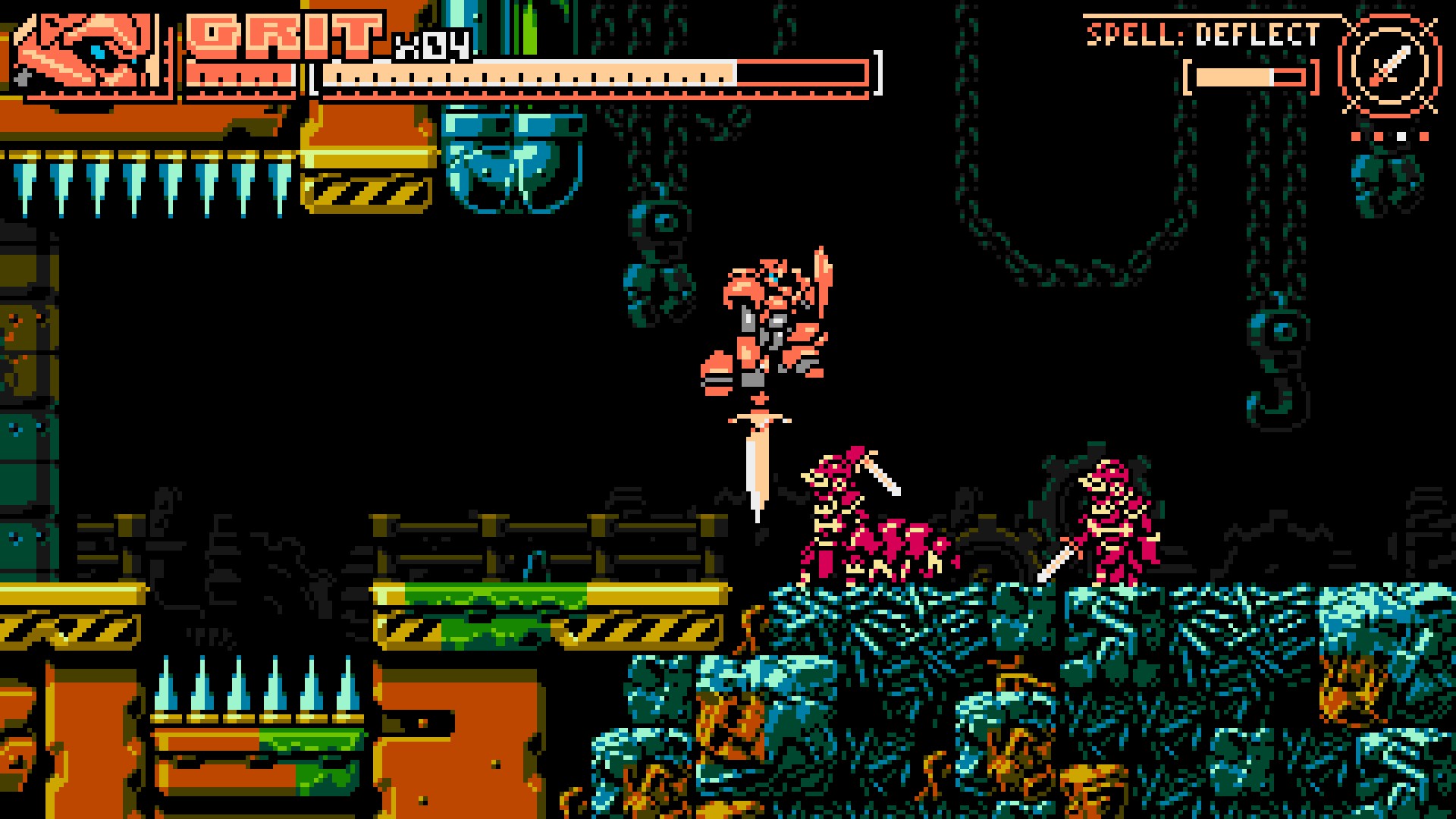
That said, Panzer Paladin's gameplay is simple: you go from stage to stage fighting enemies and tackling various platforming challenges. I really enjoy the setting for these levels; you'll be going on a world tour of sorts, with each stage themed after a country ranging from Tanzania, Japan, to Russia. At the end of these levels are bosses straight out of mythology, so as an example, you'll fight Medusa at the end of the Greece stage. On the topic of stages themselves, I wasn't entirely impressed by the early levels' layouts. They didn't do anything extraordinary and would have preferred some unique gimmick. One stage in Switzerland takes place on a train and has slick snow, but the train is really just the theme of the level and provides no distinctive or unique platforming challenges over other stages.
While I'm quite critical towards the platforming and earlier levels, I really began to appreciate the challenge and layout of Panzer Paladin's later stages. After completing the world tour, you'll take on a new challenge by taking the fight directly to the monsters themselves. This means that you won't be on Earth; rather, you run through a gauntlet of otherworldly stages in the enemy's own floating fortress. Levitating platforms, deathly lava, and a giant factory are some of the perils you'll face, and with the increased danger there is much more entertainment value. The only downside to this segment is that if you return to the world map, you have to redo every single level in the fortress all over again. Instead of quitting to the main menu, I accidentally went to the world map and lost five levels of progress - and this happened twice. It's a puzzling design choice that shouldn't belong.
Truly, I believe Panzer Paladin opens up and shows its charm after the first half. Besides the enemy fortress, after beating this platformer itself you'll be treated to a more difficult mode called "Remixed Story Mode." Level layouts are all more challenging and dangerous, and enemies have more health. Overall, it improves upon some of the earlier levels, and adds some replayability to boot. If you'd prefer, there's also a mode for speedrunning and a boss gauntlet. There's a great deal of content here, especially for those who try to get as much out of their retro platformers as possible.
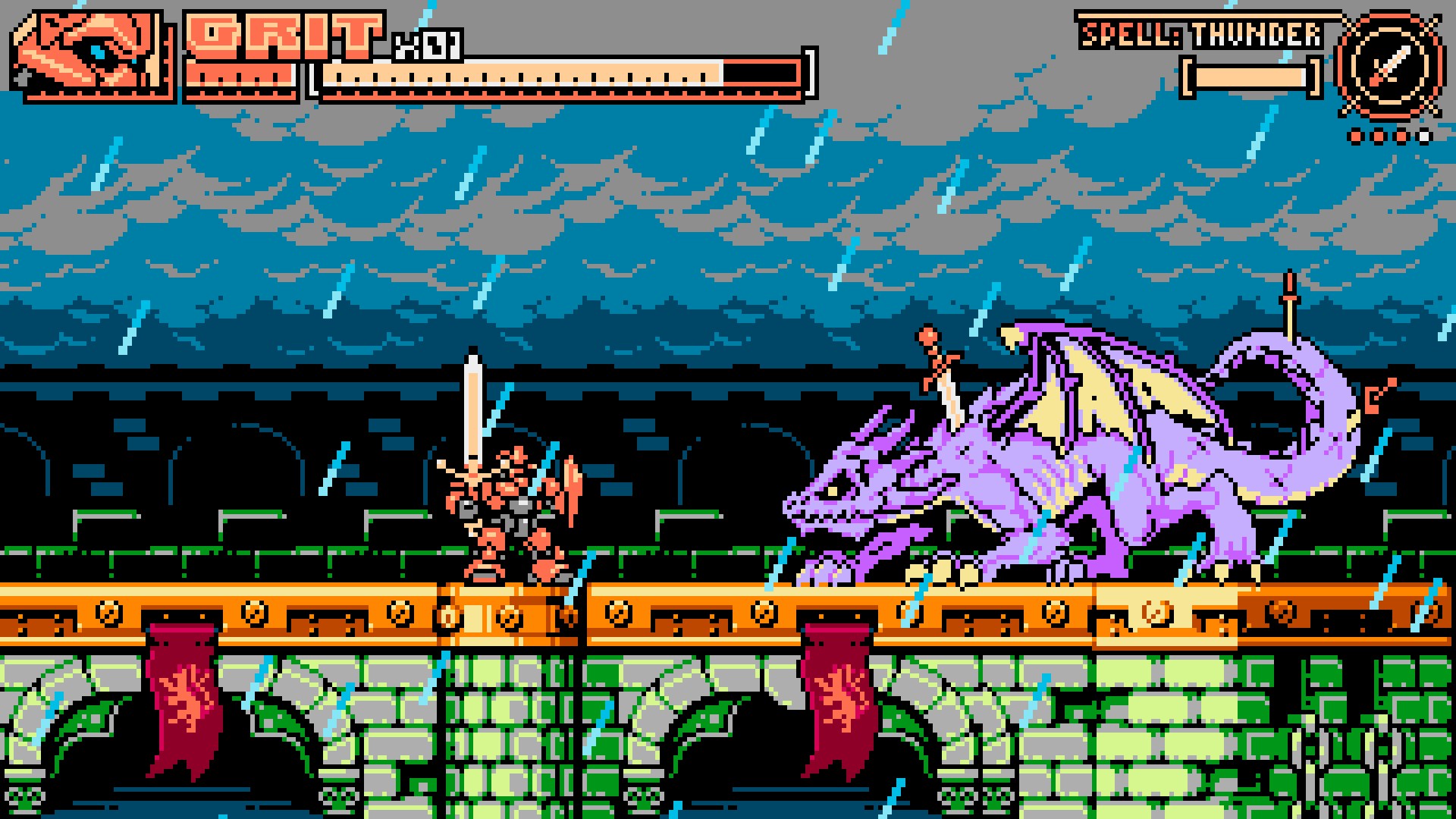
Hacking and Slashing in Panzer Paladin
This is no generic NES-style platformer, though. The schtick behind Panzer Paladin is the weapons. As you traverse levels, you'll come across dozens of different swords, hammers, and spears from history. The Viking Seax, Zweihander, and Kukri are just some of the different weapons you'll come across. As a fan of historical blades in general, I really appreciated the spritework on these weapons and the excitement of finding new ones as I ventured further into the story.
Weapons vary in length, speed, power, and more. You can throw them for extra damage (which will also destroy them upon impacting an enemy), or hit enemies with them until they break. Weapons are a finite resource, and some are simply better than others. The most interesting aspect of weapons, however, is that each one has a different spell attached to them. You can deliberately break weapons in Panzer Paladin, and doing so will grant you a temporary boon. Some might heal you, or others can increase your attack. Some might even give you the short-term power to fly. I absolutely adored this mechanic, since you actively have to make strategic decisions during combat.
Say, for example, you're fighting a boss. You're low on health, but a weapon that fully heals you is also one that does a lot of damage. The choice to break the weapon to heal or keep it to do some extra damage creates a great dynamic. Some of the weapons that grant you buffs are fun to break during combat to give you an extra edge. I prefer to break my weapons when the durability is at its lowest point, but sometimes desperate times call for desperate measures. Whatever the case may be, I deeply enjoy the depth of the weapon mechanics. It separates Panzer Paladin from a lot of other platformers.
You're not just limited to the weapons found within the game. In the "Blacksmith" mode, you can create your own weapons, which will also be cleverly uploaded to the Steam Workshop for other players to use. I adore the ability to have your own creations in Panzer Paladin. In this mode, you're given a grid which you can place pixels on to create a weapon sprite. I'm terrible at this part because I'm not an artist by any stretch of the imagination, but I find it a lot of fun. After creating the sprite, you're able to allocate a finite amount of points towards certain stats like damage, durability, or throw damage. Already, there's a lot of cool creations on the Steam Workshop, and I hope to contribute with my awful works of art. This is definitely one of the coolest things about Panzer Paladin.
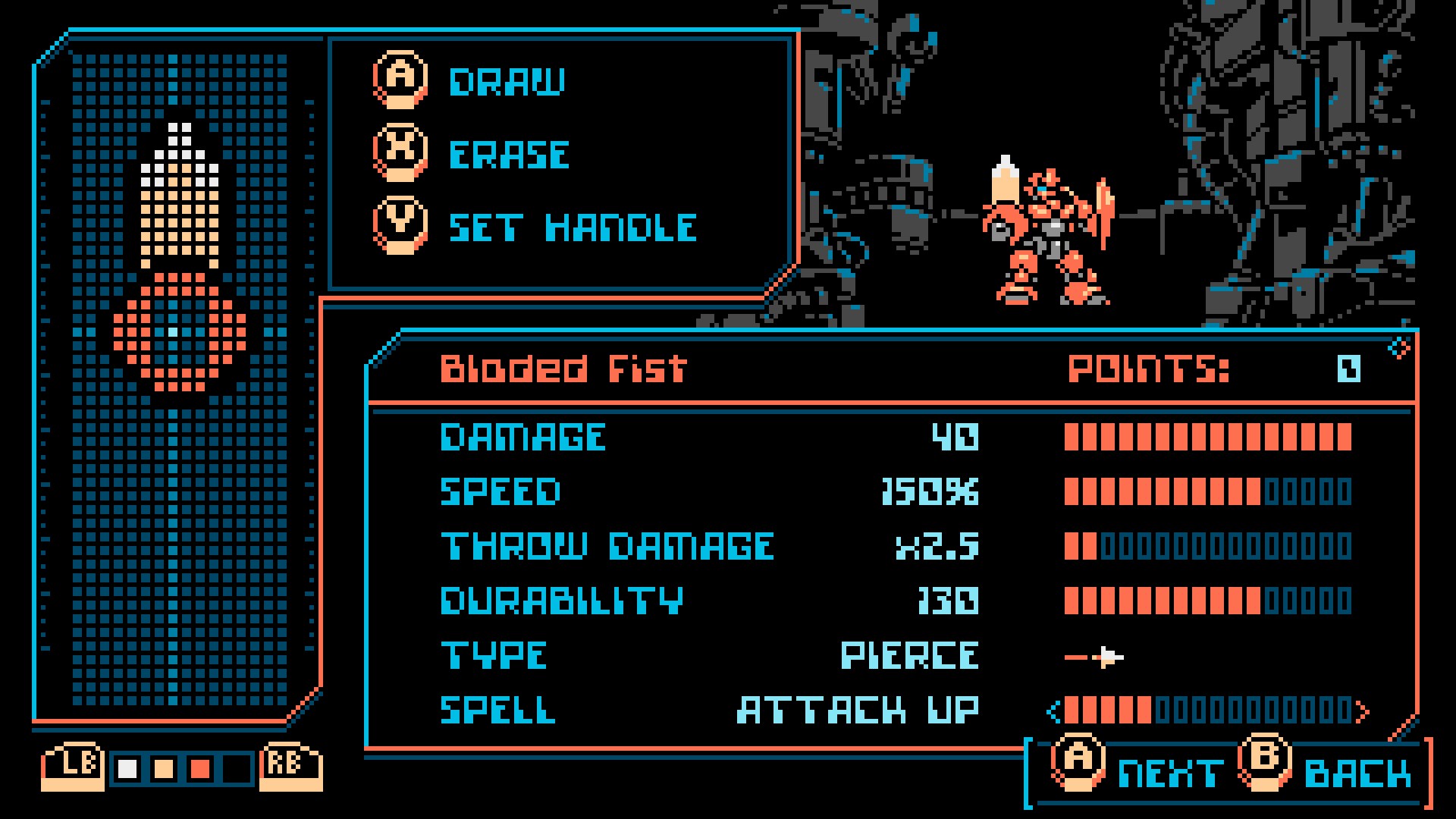
Panzer Paladin Review | Final Thoughts
It would be a crime to not mention how authentic and pleasing Panzer Paladin is to look at. The spritework is excellent, from the lumbering hulk that is your mech to the enemy animations. The levels, while lacking in the area of platforming, are beautifully rendered. The soundtrack is also worth praise. I can get annoyed by the repetition of retro soundtracks, but these chiptune beats never got old. If you find 8-bit spritework to be off-putting, I think you can still appreciate the artistry involved in creating Panzer Paladin.
There's no doubt about it, there's a few problems with Panzer Paladin. The lumbering mass that is your mech is a bit too slow for my liking and makes platforming sluggish; meanwhile, the first half Panzer Paladin lacks in interesting level design. Those complaints aside, Tribute Games' idea to include the unique weapon system and the ability to create your very own sprites is fantastic. Further, there's a suite of extra game modes that will extend the longevity of this title and give players plenty of content to tackle. Shovel Knight's deluge of content is finally over, so why not give another retro platformer a try with Panzer Paladin?
TechRaptor reviewed Panzer Paladin on Steam with a code provided by the developer. It is also available on the Nintendo Switch.
Review Summary
Pros
- Great Retro Aesthetic and Sound Design
- Unique Weapon System and Blacksmith
- Plenty of Different Modes
- Later Half's Level Design Picks Up
Cons
- Sluggish Platforming
- Some Lacking Level Design
- Easy to Lose Progress in Last Half
Have a tip, or want to point out something we missed? Leave a Comment or e-mail us at tips@techraptor.net
